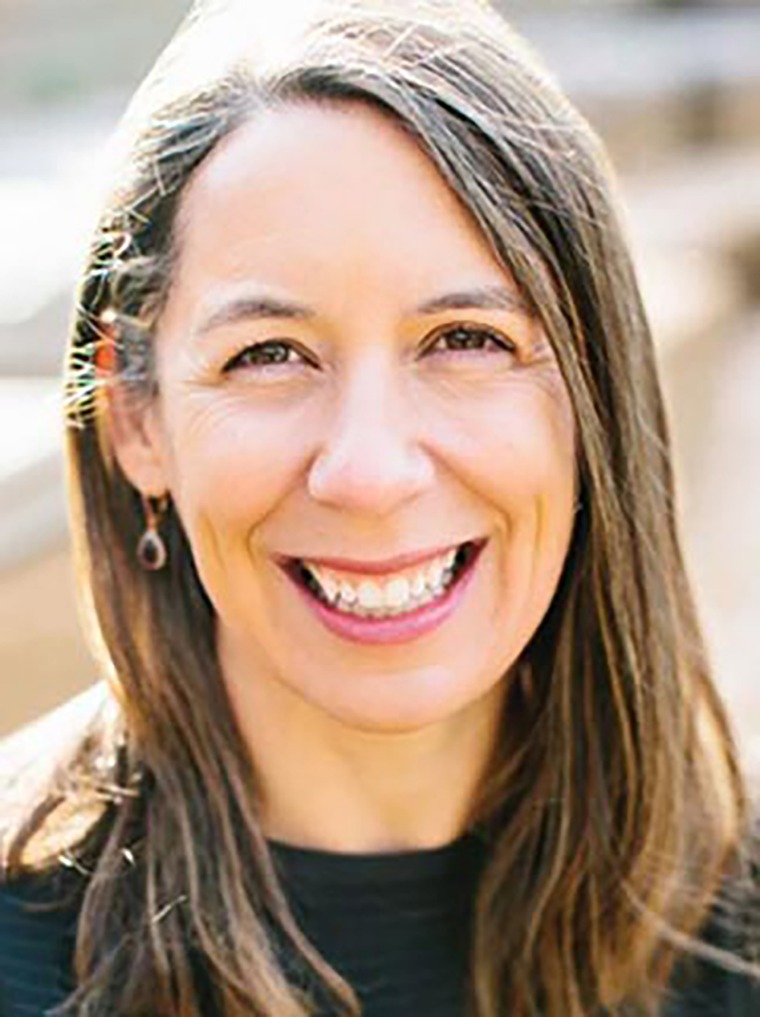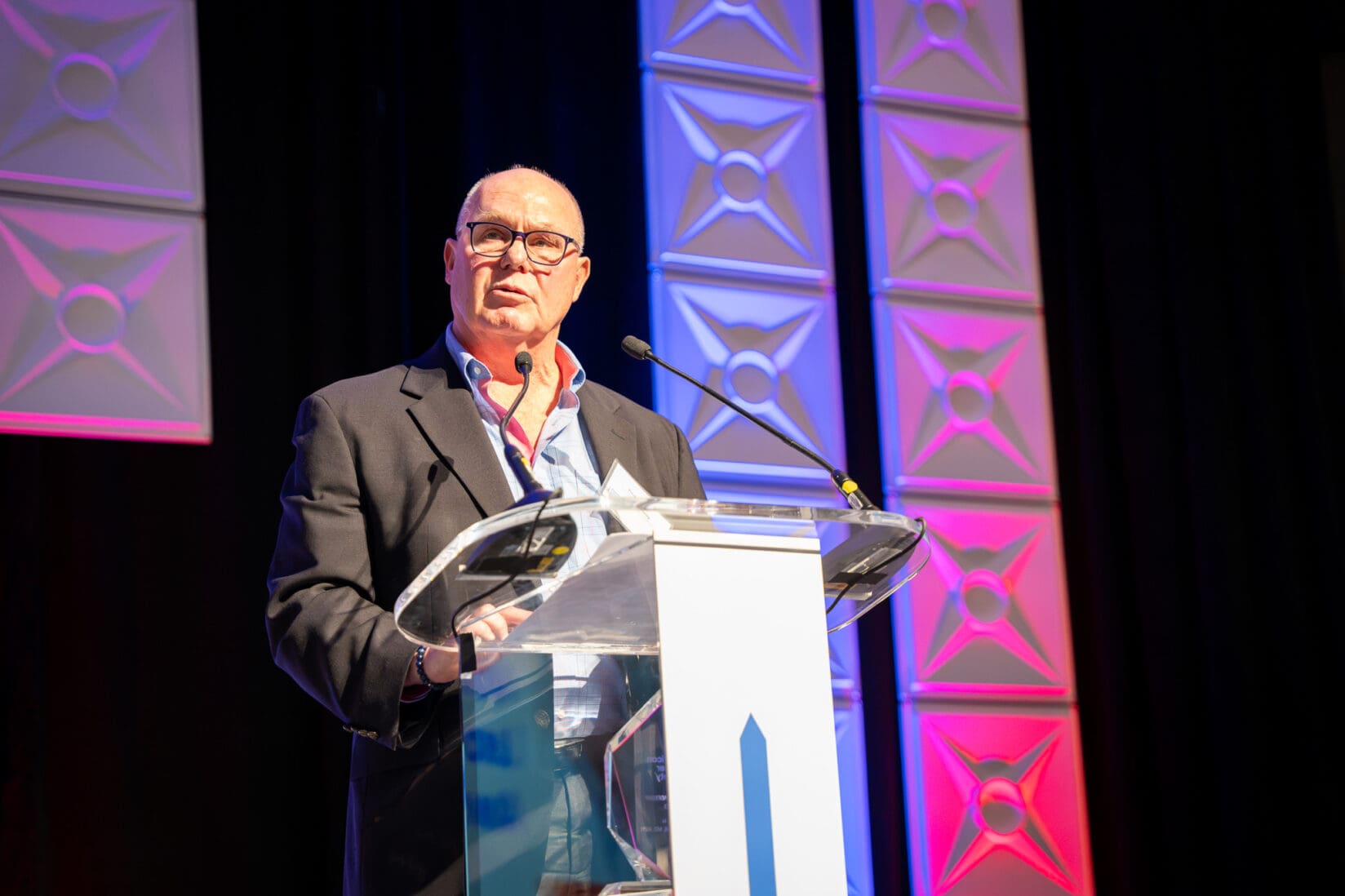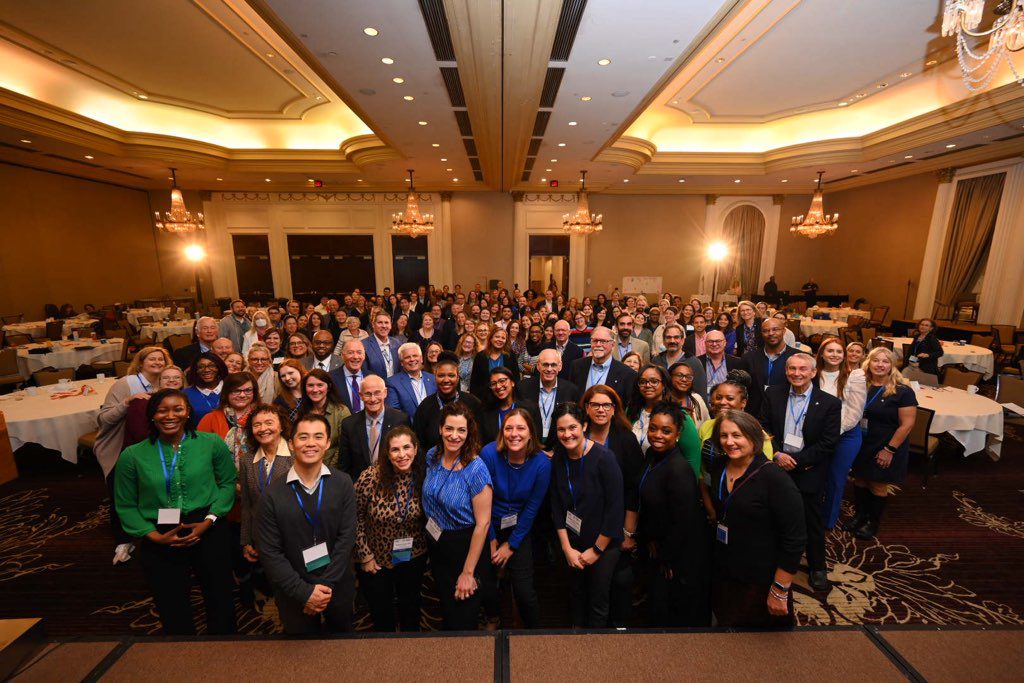Interview with Coal Country Community Health Center—Grand Prize Recipient of the 80% by 2018 National Achievement Award
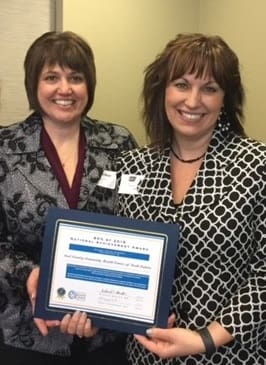
On March 1, 2016, Coal Country Community Health Center became the first Grand Prize recipient of the 80% by 2018 National Achievement Awards, a program designed to recognize individuals and organizations who are dedicating their time, talent and expertise to advancing needed initiatives that support the shared goal to regularly screen 80% of adults 50 and over by 2018.Chastity Dolbec, RN, BSN, (pictured at right) is the Director of Patient Care & Innovation at Coal Country. She has over 25 years of combined nursing experience in the areas of long term care; home-health and hospice; acute and primary care; patient-centered medical home; population health and care coordination.
Deb Kasanke, RN, (pictured at left) is the Charge Nurse/Quality Coordinator at Coal Country. She has over 30 years of combined nursing experience in the areas of long term care; home-health and hospice, acute and primary care, and care coordination.
Hi, Chastity and Deb! Congratulations! We’re excited to feature your work on the 80% by 2018 Blog. Can you tell us a little about yourself and how you ended up working on colorectal cancer screening?
We have each worked for Coal Country Community Health Center for several years (Chastity for six and Deb for 11) and have been part of an extraordinary team focusing on improving population health through the development of a patient-centered medical neighborhood. Under the direction of Dr. Aaron Garman, Medical Director, our delivery of healthcare has transformed from an acute care model, where we largely focused on sick visits, to a prevention and wellness model, where we are pro-actively working to keep our patients well.
Tell us a little bit about Coal Country Community Health Center.
Coal Country is a federally qualified health center located in rural west central North Dakota with clinics in Beulah, Center, and Killdeer, where staff provide comprehensive health services to our patients throughout their lives, including basic primary care, diagnostic and screening services, health education, disease management, care coordination, and behavioral health services. Coal Country provided 31,227 visits to 7,867 patients through its patient-centered medical neighborhood in 2015.
When and why did Coal Country decide to focus on increasing colorectal cancer screening?
In 2012, HRSA (Heath Resources and Services Administration) updated its core clinical measures (Uniform Data System or UDS) to include colorectal cancer screening. As a result, Coal Country began tracking colorectal cancer screening rates. We realized we were at 29% and wanted to do better. By focusing on quality improvement and doing what we know works, we knew our colorectal cancer screening rates could improve to reflect the type of quality care we strive to deliver to our patients. With the strong support of Coal Country’s executive leadership team, we implemented a quality improvement plan for increasing colorectal cancer screening rates in addition to breast and cervical cancer screening rates. Through ongoing collaboration and implementation efforts associated with our patient-centered medical neighborhood, our clinic developed innovative approaches to improving our overall rates.
Coal Country has obtained National Committee for Quality Assurance (NCQA) Patient-Centered Medical Home (PCMH) Level 3 recognition, the highest level of recognition. That’s impressive. How does that inform the type of changes you made to support colorectal cancer screening?
A key element of the patient centered medical home model is implementing a team-based approach to care delivery, so our providers lead care coordination for our patients in close concert with our chronic care coordinators (CCCs).
For us this meant implementing evidence-based clinical guidelines and standing orders, under the direction of our medical director. Colorectal cancer screening has become a routine screening at all visits with age appropriate patients. Our registered nurse CCCs complete pre-visit planning for all patients, communicating recommended screenings to our medical home teams. All care teams frequently send reminders and recalls to patients who are not up to date with colorectal cancer screening. Colorectal cancer screening rates improve when the whole team is working toward that improvement and everyone understands his or her role.
Additionally, we had the freedom and support to try innovative programs. Through our population health committee and collaborative relationships, Coal Country facilitated our first annual flu-FIT campaign in 2015 working together with our local public health unit and rural health clinic. We screened 289 patients for colorectal cancer screening during our two community wide flu clinics. This was a very successful event which we plan to continue on an annual basis.
What success have you seen? How did you measure that success?
Coal Country has increased its colorectal cancer screening rate from 29% in 2012 to 70% in January 2016 through the implementation of several innovative quality improvement projects. Our patients have become accustomed to our comprehensive health screening questionnaire as part of their visit, which includes a question about colorectal cancer screening. Increased education and communication with our patients has been received through positive feedback on our patient satisfaction surveys.
Coal Country measures all screenings through a report writing software included with our electronic medical record as well as through a population management software product through Blue Cross Blue Shield of North Dakota. Every six months we review 100% of all age-eligible patient records for colorectal cancer screening and send recalls and reminders to patients on the importance of completing screening. Patients have shared their stories with the local media highlighting the importance of completing colorectal cancer screening within their medical neighborhood.
We understand your clinicians can get competitive with one another in trying to improve screening rates?
Yes, when we started this process, we shared with our providers their individual baseline screening rates. One of our physician’s assistants was at 19%. He didn’t like that! But that knowledge served as a motivation to do better. In just six months, he improved his rates to become one of the highest performers around colorectal cancer screening in the clinic.
What lessons learned would you share with others that are working to increase colorectal cancer screening in primary care settings?
Development of clinical guidelines and standing orders by our medical director was the beginning of our success. Strengthening our collaboration with the local critical access hospital (Sakakawea Medical Center) through the delivery of a medical neighborhood has also been key to our clinic’s ongoing success. We do not have access issues for colonoscopy thanks to our relationship with Sakakawea Medical Center. Whether being able to offer FIT cards at the clinic visit through screening protocols by the medical home provider and team; or with offering further colonoscopy screening options at Sakakawea Medical Center through general surgeons, Coal Country has increased its colorectal cancer screening rates through comprehensive care coordination.
Coal Country has a unique arrangement with Sakakawea Medical Center. Can you tell us about it?
Yes. Our CEO also serves as the CEO of Sakakawea Medical Center. This is an unusual arrangement that had to be approved by the Health Resources Services Administration (HRSA) and the National Association of Community Health Centers (NACHC). It may be unusual, but it has served us and our patients well, creating a true partnership between Coal Country and our critical access hospital. The partnership helps us provide a continuum of care for our patients.
Were there tools, trainings or resources that you found helpful?
Coal Country participated in the North Dakota Colorectal Cancer Roundtable, a statewide coalition of organizations dedication to 80% by 2018, in 2015, which provided us with additional education and resources from the American Cancer Society and the North Dakota Department of Health. Dr. Richard Wender, NCCRT chair, provided an engaging keynote presentation, which facilitated and engaged our team to become more motivated to continue our local efforts to increase colorectal cancer screening rates. Our local American Cancer Society representative, Shannon Bacon, has also been instrumental in assisting our organization through the delivery of additional resources. For instance, the ACS flu-FIT toolkit and www.flufit.org website were very important resources for us as we implemented the flu-FIT campaign in 2015. Deb Kasanke continues to be an active member of the North Dakota Colorectal Cancer Roundtable, which was most recently tasked with the deployment of a unified message to patients for national Colorectal Cancer Awareness Month.
Do you have any final tips for our readers that are working to achieve 80% by 2018?
Our most important tip for others would be to develop and strengthen collaborative relationships through the development of a patient-centered medical neighborhood model of care delivery. Comprehensive care coordination is at the heart of improving patient outcomes, decreasing overall healthcare costs, and improving patient satisfaction. Our clinicians know that if a cancer is detected in the screening process, the patient’s follow up care will be assured.
Thank you for sharing your story with us! We look forward to hearing more about your work and Coal Country’s progress in the future.
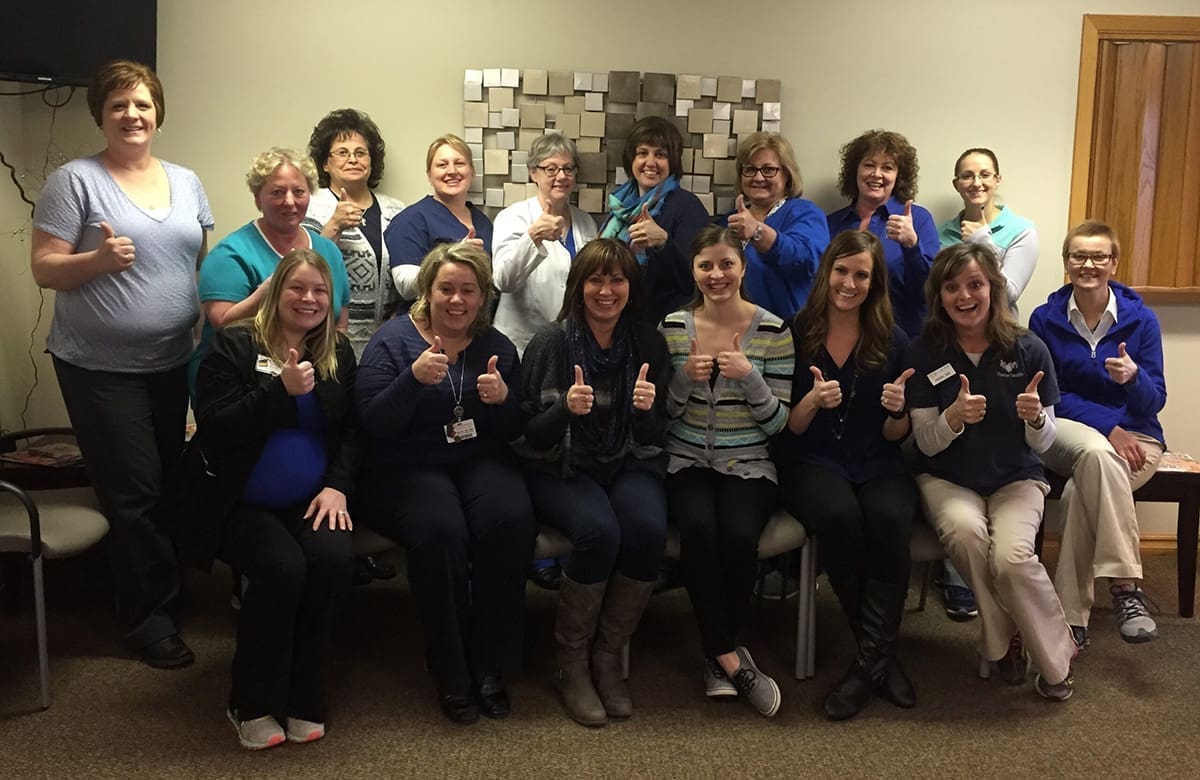

We Highlight Successes, Leaders, Best Practices, And Tools That Are Making An Impact In The Nationwide Movement To Reach 80% Screened For Colorectal Cancer.
Do you have a suggestion for a future blog topic? We welcome you to share your suggestions by emailing [email protected].
Blog Policy
Opinions expressed in these blog posts are that of the author and do not represent policies of the National Colorectal Cancer Roundtable or the author’s institution.
Our staff moderate all comments on the 80% Blog. While we do not censor based on point of view, we will delete or edit comments that are offensive or off topic. Click here to view full version.
© 2024 American Cancer Society National Colorectal Cancer Roundtable. All rights reserved.
